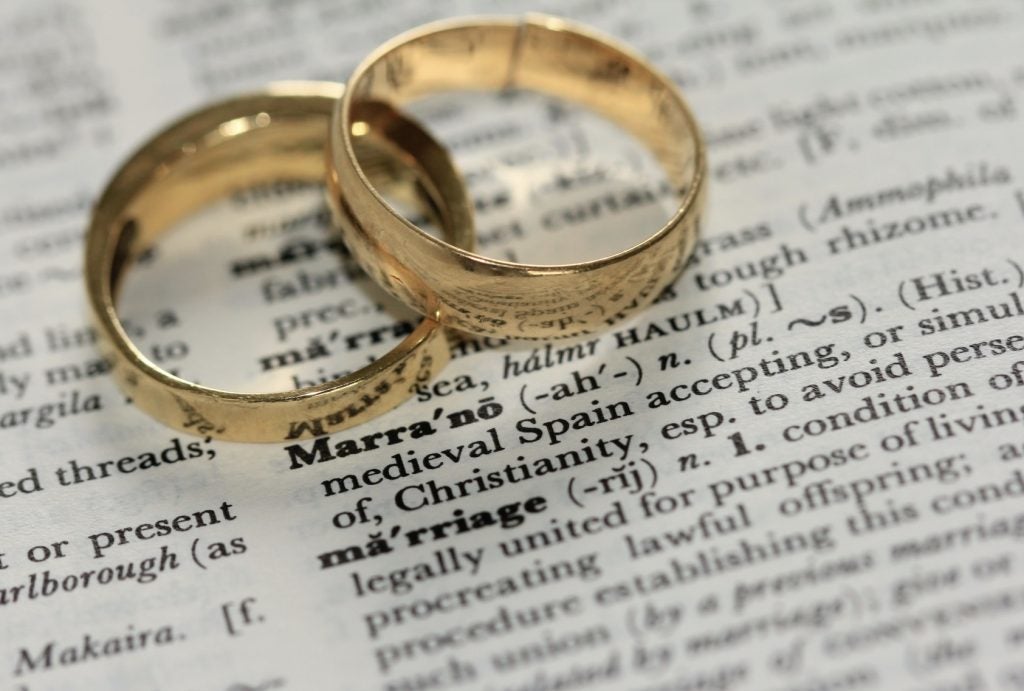Jealousy is defined as an unpleasant emotion that arises when another person encroaches on something someone feels is their own, and can be particularly frustrating and difficult to talk about. While it is generally associated with romantically involved partnerships, jealousy can spring up in any type of relationship and cause conflict and emotional distress. If left unaddressed, jealousy can severely hinder a person’s ability to communicate effectively. Without open conversations, partners may even miscommunicate their personal expectations and intentions about their relationship. Boundaries in a relationship may mean different things to different people, and what may be considered cheating to one person could be harmless flirting to another.

Many cultures generally encourage monogamous relationships, and jealousy often stems from concerns or suspicions that someone in the relationship is no longer faithful. Cheating is a violation of the exclusivity of a couple, and this violation can be physical or emotional. Cultural perceptions of infidelity are often gendered, resulting in vast differences between the way unfaithful individuals are treated. For example, men are often lauded for boldly expressing their sexuality, even while in a monogamous relationship, while women may experience slut shaming and misogynistic treatment for expressing their sexuality. In today’s context, cheating and jealousy are not always easy to define, due to the complexity of each individual’s situation.
Table of Contents
Jealousy: The Fear of Comparison

Jealousy is an incredibly complex emotion that is difficult to define. It often involves uncomfortable feelings like abandonment, betrayal, loss, anger, and embarrassment. Modern research has drawn connections between the primal nature of jealousy and the attachment system of the brain; jealousy is a “genetically ingrained circuit” that is crucial to social bonding and makes us very sensitive to outside threats.1 According to a psychologist at the University of Texas, jealousy is a necessary evil that both deters infidelity and encourages the longevity of a relationship by dispelling the complacency that long term partnerships often settle into.
In certain studies, however, intense jealousy has been positively correlated with emotional instability and negatively correlated with agreeableness.1 This means that people who tend to get jealous often exhibit controlling behavior over their partner like getting angry at them for spending time with others, trying to dictate what they wear, controlling where they go, and undermining their self-esteem. These behaviors often stem from an overwhelming feeling of inadequacy. According to recent psychological studies, most people try to convert their discomfort to anger, which fuels their desire to control their relationship and their partner.1 Unfortunately, these behaviors can drive a partner away, and do far more harm than good.
How To Overcome Feelings of Jealousy
Psychologists agree that the best way to address disruptive feelings of jealousy is to communicate with a partner and reflect on why these feelings are arising in the first place. Without reliable communication, partners may have very little chance of fully comprehending the other person’s perspective. In order to overcome the jealousy that can result from miscommunication, partners should articulate their thoughts in a manner that is non-accusatory and will not cause a defensive response in their partner. If it becomes a very pressing issue that affects the quality of the relationship, partners may consider couples’ counseling. In a counseling setting, a professional mediator dedicates time to resolving conflict and can give helpful suggestions and techniques for effective communication.
What About in Small Doses?
While excessive jealousy can cause stress in relationships, research does show that a little bit of jealousy can be good for relationships, especially in the initial stages. At this point, trust has not fully developed, and a moderate amount of jealousy can act as a measure of a commitment. Jealousy is often considered an expression of attachment and can be a good indicator of whether or not it is safe for each partner to invest more emotion. When a new partner expresses the importance of faithfulness, it can be reassuring to the security of the relationship.Healthy jealousy is about the importance of faithfulness; if jealousy in the early stages of a relationship includes controlling behaviors, then it is not healthy.

Infidelity
Infidelity generally involves emotionally or physically intimate relations outside of an established monogamous relationship. Often, infidelity is defined differently according to different people; what may be harmless flirting to one person may be an act of betrayal to another. Infidelity can have devastating effects on any relationship and can bring about feelings of betrayal, hurt, and distrust. Psychologists report that infidelity is especially painful to deal with because of the commitment and vulnerability involved in romantic relationships.2
An Evolutionary Psychology Perspective
Evolutionary psychologists have argued that due to its prevalence throughout world history, “infidelity must be viewed as an adaptation,” and something that offers reproductive advantages.2 Adultery can be seen as “spreading of seed” or “poaching superior sperm” by these psychologists. 2 “Spreading of seed” refers to the idea that the more reproductive matter a person with a penis spreads, the higher likelihood they will produce offspring. Research has shown that human beings have evolved three specific brain systems related to mating:
- The sex drive, which is a largely nonselective motivation to seek sex with a wide range of partners
- Romantic love, which focuses “mating energy” on specific partners
- The attachment system, which ensures that mating pairs remain with each other for years
Other researchers argue that as a species, we have evolved and lived for a long time with non possessive and friendly sexuality, and that the current obsession with monogamy and exclusivity emerged with the rising importance of agriculture and private property. This made keeping “legitimate” familial lines of inheritance important, and lead to a patriarchal social stratification that controlled female sexuality and rewarded monogamy.3
Psychological Effects of Cheating
Regardless of the biological reasons behind the prevalence of infidelity, the pain and broken trust it can cause is undeniable. Cheating can severely affect self-esteem, and one partner may be plagued with feelings of inadequacy (“why wasn’t I good enough?”) as well as a lack of closure. The partner who was cheated on may feel unworthy and unloved, and these feelings can be very difficult to process and move on from. Many therapists and counselors offer their services to couples in these situations, and seeking counseling or therapy for oneself in this situation could prove beneficial. However, the healing process is a very personal, day-by-day process. . Cheating in a relationship can cause psychological stress, but it is something that an individual can overcome with time.

After Infidelity: Moving On and Processing
Psychologists suggest that if people begin to suspect that their partner is having an affair, they should communicate directly with their partner. If a person has observed behavior that reflects a suspicious pattern, they should give their partner a chance to respond to their concerns and explain the situation. If someone’s partner denies any accounts of cheating, it is up to that person to evaluate their instinct and make the decision to believe them or not.
If the person’s intuition still pushes them to believe that their partner is cheating, they must make a decision: either attempt to mend the relationship or leave before they experience further heartbreak. This is an important choice that should be evaluated very seriously. A person may want to consider asking for an outsiders’ opinion in order to get a more objective assessment of the situation. If they confirm that their partner is cheating, repeating self-affirming mantras can help a person remember that the goal is to be proud of how they handled the adversity because it is a reflection of their own strength. Many intense feelings may arise, but it is best to process the situation calmly and rationally with a support system, rather than give in to anger that may leave a person feeling worse in the long run.
Infidelity: Cultural Differences
Different cultures have varying views on cheating and jealousy. In 2019 UCLA professor Brooke Scelza studied eleven different societies and their general responses to infidelity. Her findings were that in societies where fathers were more involved in child-care, both men and women in that society had negative views towards infidelity.4 She also found that in most places men found infidelity more upsetting than women.4 Her research was inspired by studying Himba pastoralists in Namibia, who often have multiple sexual partners outisde of their happy marriages. 4 So, while in Western societies monogamy is considered normal, this is not the case everywhere else.

Concluding Remarks
Relationships are complicated because humans are complex beings. Personal connections can become unstable and wrought with jealousy, infidelity, and strife, but with the right person, relationships can be wonderful celebrations of love and companionship. Through effective communication and mutual respect, problems can be successfully navigated and a relationship can be a very fulfilling part of life.
References
- “Jealousy: Love’s Destroyer.” Psychology Today. N.p., n.d.
- “The Causes of Infidelity: Players Gonna Play?” Psychology Today. N.p., n.d.
- Katie Halper / AlterNet. “Sex at Dawn: 9 Interesting Things We’ve Learned About Sex From Studying Our Ancient Ancestors.” Alternet. N.p., n.d.
- “Why Is Infidelity So Painful?” Psychology Today. N.p., n.d.
- UCLA Health Newsroom. (2019, July 24). Study finds cultural differences in attitudes toward infidelity, jealousy. UCLA Health. https://www.uclahealth.org/news/study-finds-cultural-differences-in-attitudes-toward-infidelity-jealousy
Last Updated: 03 March 2022.
